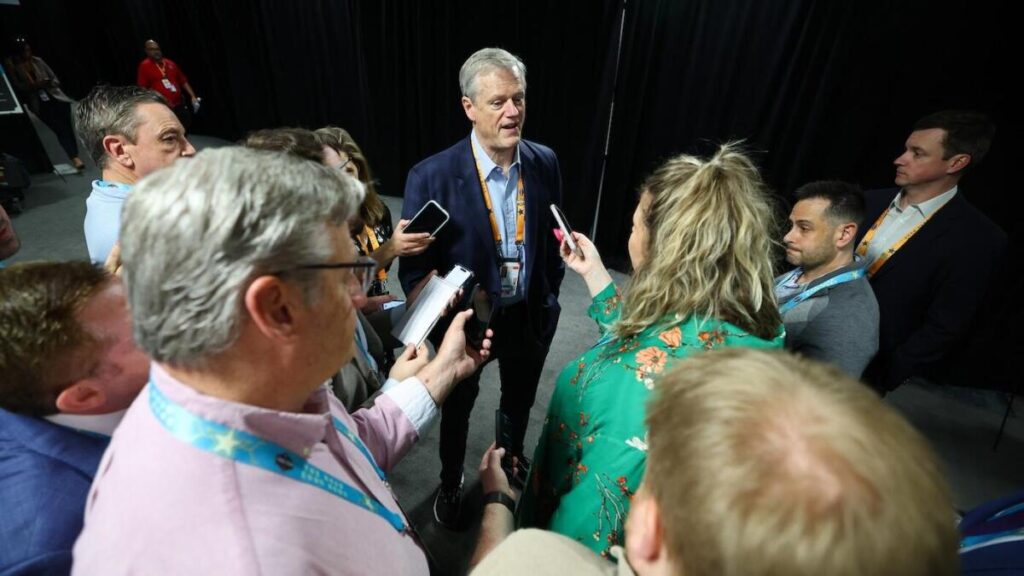SAN ANTONIO, Texas — NCAA president Charlie Baker does not expect Judge Claudia Wilken to formally approve the House settlement following hearings on Monday. However, Baker told reporters Saturday at the Final Four he does think Wilken will eventually approve the landmark measure.
“I don’t think she’ll approve it on Monday,” Baker said. “She may give us some guidance with respect (to) what direction she’s leaning. My guess is she’s going to have the hearing and she’ll [approve it] after that.”
The House v. NCAA settlement looms as one of the biggest changes in college athletics in decades. The settlement of a multi-billion class-action suit from 2020 establishes a trough of $20.5 million for schools outside of NCAA oversight to directly pay athletes for their athletic talents.
That settlement goes directly against the foundation of why the NCAA was founded 120 years ago – to protect the amateur ideal. But for the NCAA to survive, strategically, it had to agree to the settlement. Had the lawsuit gone to trial, the NCAA risked losing in court which would have trebled the damages and possibly bankrupted the association.
Baker’s view is held by many of college sports’ power players, who told CBS Sports they don’t necessarily expect Wilken to rubber stamp the settlement on Monday after hearing objections. If approved, the settlement goes into effect July 1.
The settlement will be overseen by Wilken, global auditing giant Deloitte, and the Power Four commissioners. They are in the process of hiring a CEO and a board to police the House elements that essentially continue to cap compensation for athletes.
“One of the things I like about the settlement is that it puts a process in place that doesn’t say there is one style, one answer, one solution,” Baker said. “I also think it will be rocky and bumpy because it’s the biggest change in 40 years. … Let’s set it up. Let’s see how it goes. It’s far better than what we have now.”
The brewing rev-share battle that will upend college basketball: ‘Why am I going to lose another $2 million?’
John Talty
Those advantages Baker sees in the settlement could also be liabilities. By definition that $22.5 million is capped, meaning there are possible legal issues to limiting compensation. Deals over $600 will be vetted. There is also a first-of-its-kind fair market value component.
An arbitration process agreed upon by plaintiffs and defendants would settle disputes.
Baker was asked if, given President Donald Trump’s flex of power in his first 100 days since inauguration, it would be worth pursuing an executive order giving the NCAA an anti-trust exemption. The association has long pursued such an exemption for years, employing scores of lobbyists and spending millions of dollars on Capital Hill.
“Anything that would happen in Washington would have to be done through the Congressional process,” Baker said.
On Feb. 6, the NCAA reacted to Trump’s executive order by limiting competition in women’s sports to persons assigned female at birth.
Baker also spoke on the NCAA continuing to monitor social media harassment of coaches, officials and players. If there is degrading language on social media platforms “more often than not” will block social media offenders for the duration of a tournament, Baker said.
“If they see stuff that they consider to be profoundly challenging and potentially dangerous they’ll notify the local authorities. We’ve done that before,” Baker said.
In 2023, law enforcement was called to protect a team in the College World Series in Omaha, Neb. after threats were made. Baker did not identify the team.
Read the full article here



